I had a few of these images waiting for an opportunity to write them up (while giving a little space from the last post about them,) and just now, I added some more. The raptors from the previous lake trip are still waiting in the wings – a ha ha ha.
We’ll start with the oldest, dating back to September 20.

 This minuscule juvenile green treefrog (Dryophytes cinereus) was perched on the stem of the blackberry iris plants in The Jungle, slightly surprising since, from the size, it was a recent hatching and I didn’t think there were any green treefrog tadpoles in the backyard pond, but here we are. I managed to slip my fingers in there for scale to illustrate that this one could fit comfortably on my fingernail, well under 1/6 adult size. So far, it’s been the only one that age that I’ve found.
This minuscule juvenile green treefrog (Dryophytes cinereus) was perched on the stem of the blackberry iris plants in The Jungle, slightly surprising since, from the size, it was a recent hatching and I didn’t think there were any green treefrog tadpoles in the backyard pond, but here we are. I managed to slip my fingers in there for scale to illustrate that this one could fit comfortably on my fingernail, well under 1/6 adult size. So far, it’s been the only one that age that I’ve found.

Same day but out back on the deck, this adult sat in bright sunlight, which is rare – they tend to avoid both the heat and the light and pick areas that will remain in shadow, and I waited for this one to move but it stayed put all afternoon. I know because I was working on the deck that day, making a racket, which may explain the hungover appearance.
I’m still monitoring the juvenile Carolina anoles (Anolis carolinensis) living on the oak-leaf hydrangea in The Jungle, and while I spotted some behavior a few weeks back that I was hoping to capture on video, I have yet to see a repeat of it, or indeed much daytime activity, so we have to settle for nighttime finds when they’re tucked in for the evening.

I struggled to get a good flash angle on this one, with the result that it doesn’t look half as nestled in as it was, almost obscured under that overhanging leaf – I’m reasonably certain that it did this to combat the chill from the drop in overnight temperatures now, and not from an attempt to hide better, given how often I find them well out in the open.
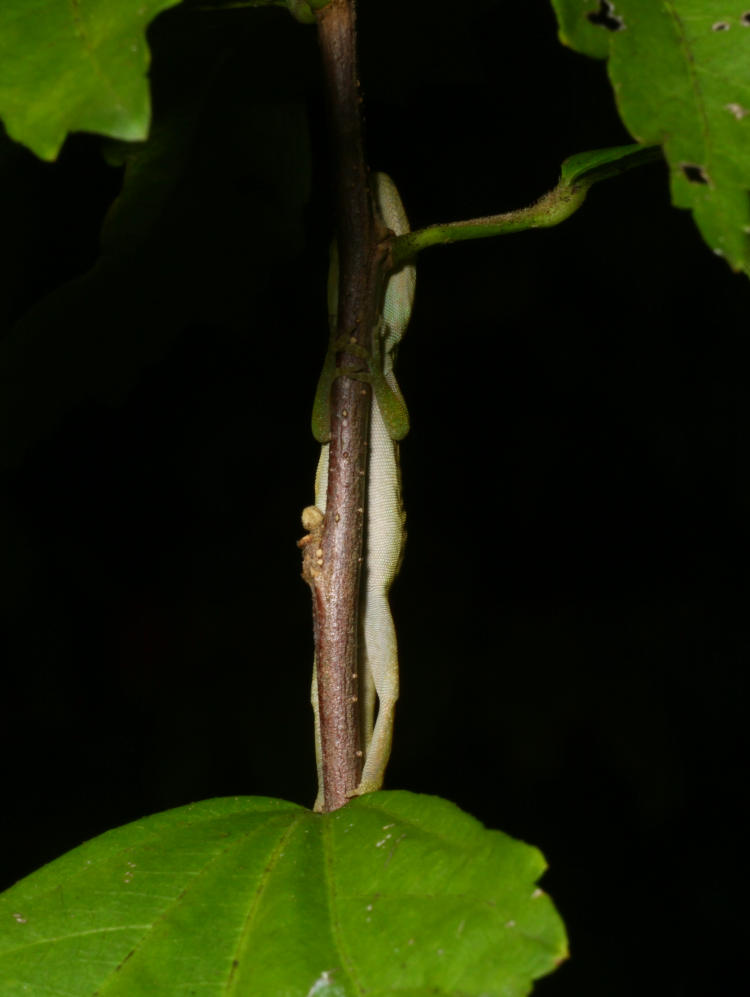
This one’s hiding ability was also a bit weak despite the obvious attempt, because the white belly showed up well in the headlamp, but you have to admire the talent to sleep vertically like that and not fall down. The simple act of maneuvering around 90° for a profile angle took more than you might imagine, given the undergrowth and vines throughout that could inadvertently disturb the rose of Sharon that the anole was sleeping upon – it required a big detour around the oak-leaf hydrangea and stepping carefully to get the next frames.

Anoles are light sleepers, and while I prefer to get them with their eyes closed to carry the thought of snoozing, it doesn’t always happen as they hear me approaching. This one was okay at first, but soon became suspicious.
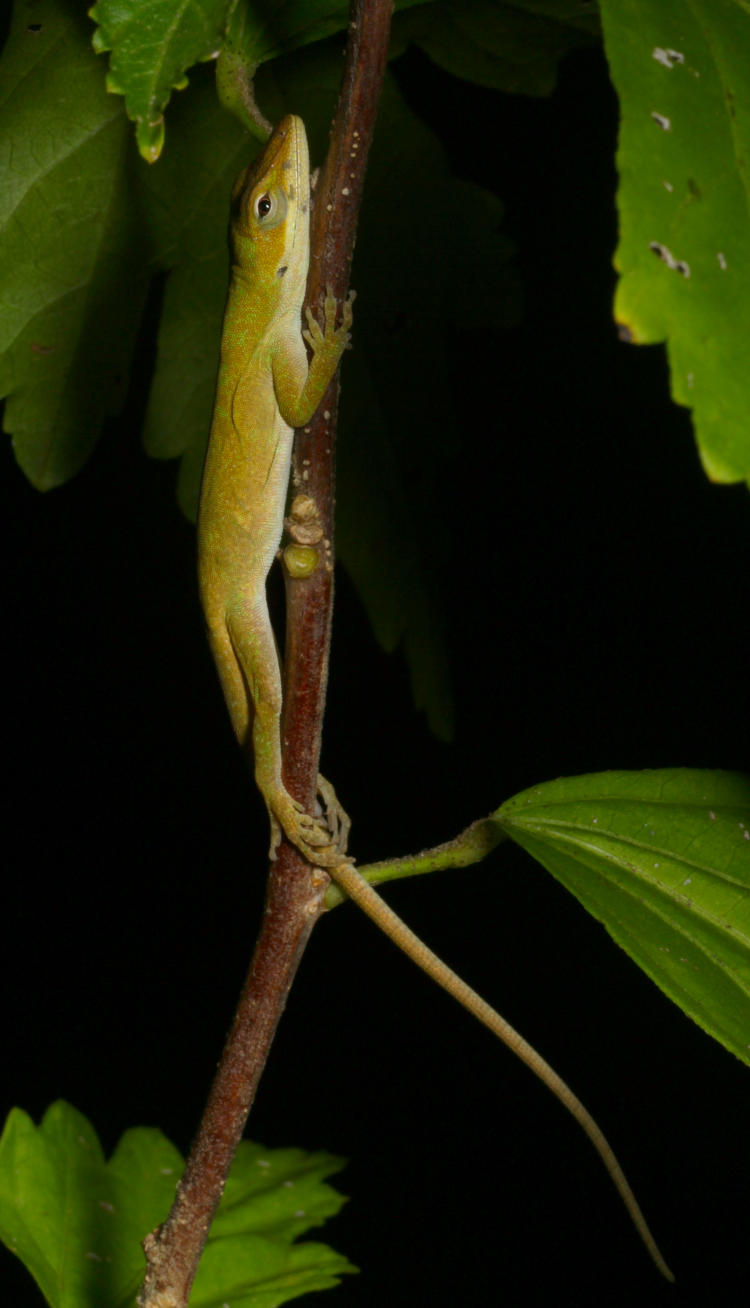
It never moved, and often enough they’ll close their eyes again even as the flash is going off at close range, but this one betrayed its anxiety by undergoing a color change in the 90 seconds between these frames, becoming a little more olive. They seem to turn their palest green at night, and I suspect this helps them gather and maintain body heat and/or dew, but that’s just a guess.
Around in the backyard, I spotted a bright spot where there shouldn’t have been one, leading to another find.
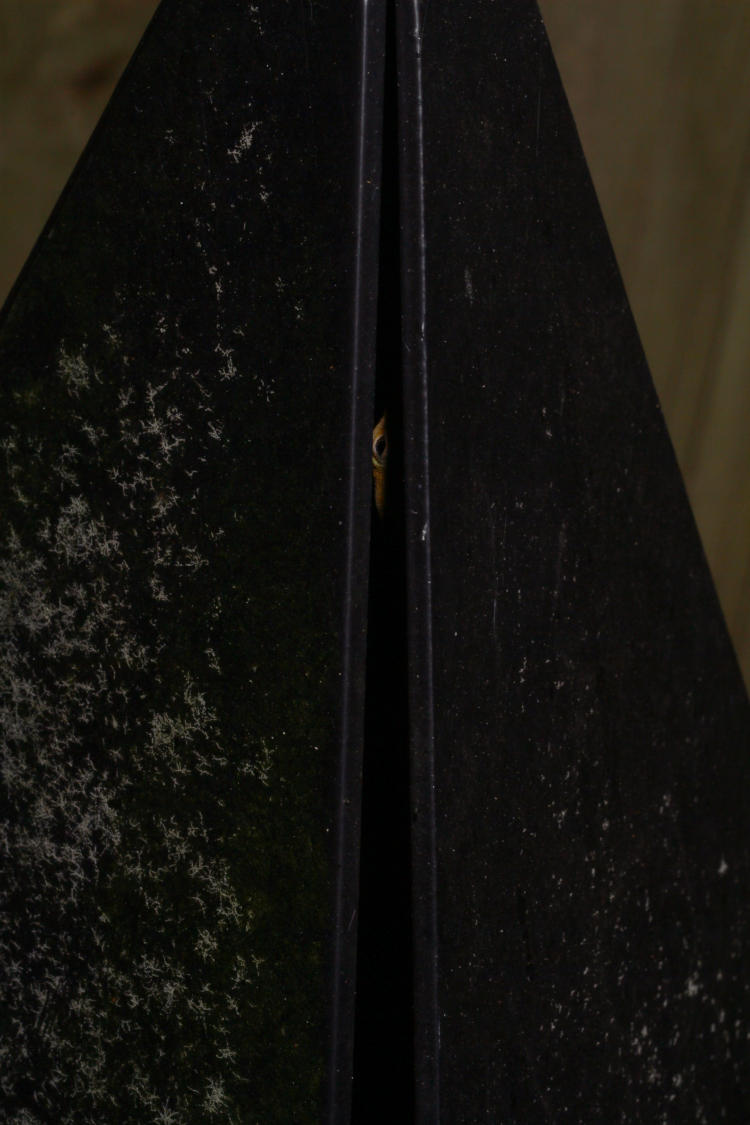
My attempts at establishing shots with the flash unit and macro lens didn’t fare well, but this is a large iron cowbell-like wind chime that hangs fairly low, the wind sail on the clapper about 25cm off the ground. What you see in the gap is the eye of an adult anole who had gotten inside to sleep, and I don’t know if it leapt up to the clapper from the ground, jumped across from the fence nearby, or shinnied up the hanging crook to come down from above. I had enough trouble just trying to get light in there, and so far, this hiding spot has not been reused.
Then came both the drastic drop in overnight temperatures, and Hurricane Ian, and I didn’t spot any anoles after that. I was suspecting that they’d found their winter hiding spots, not really sure how late they might appear, but then just tonight I found two of them again, once again out on the oak-leaf hydrangea in The Jungle.

This one was tiny, and nestled well down under the curled leaves and the dried flowers, necessitating a lot of shifting to get a decent view and flash angle. It’s not ideal and shows no signs of adhering dew, but anything else would have disturbed the plant.
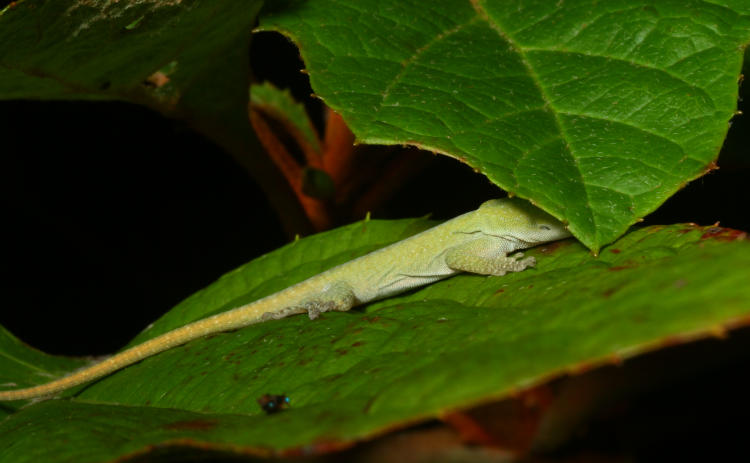
This one, 30cm or so away from the previous, was even worse, and I never got a view of the head at all. I tried one frame that would have gotten the tip of its snout, had the flash angle been better, but gave it up. I could have gotten the ring flash back out, but didn’t consider it worth the effort.
On the same hydrangea, I found that I was being watched myself.
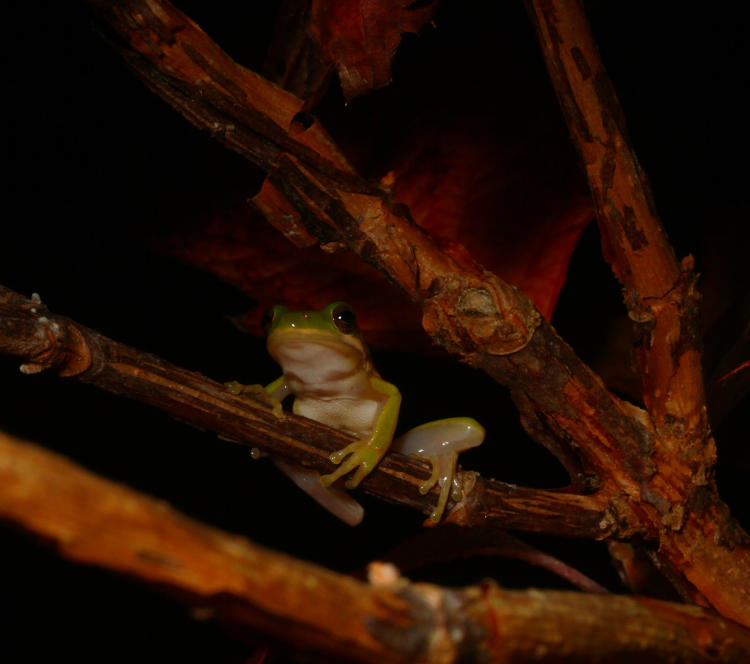
This guy was small enough, and close enough to the original location, that I suspect it to be the same tiny treefrog from above. It was deeper and more sheltered than it appears here, so getting something for scale in the frame wasn’t going to happen.
Also a little surprised by this next one.
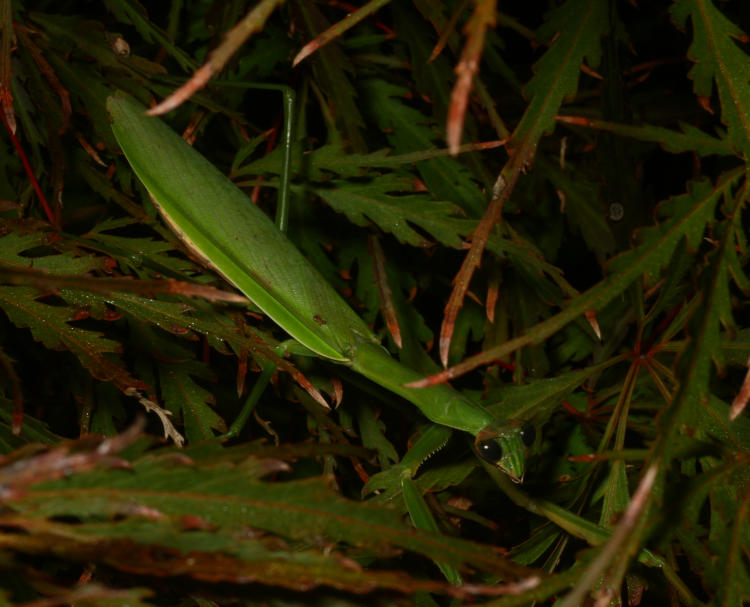
I haven’t seen any Chinese mantids (Tenodera sinensis) for a while now, and from the size I’m guessing this one’s a male, found on the Japanese maple near the front door. It was moving sluggishly in the chill, but I was still seeing moths out so the opportunities for food are still there. The opportunities for mating remain to be seen, and we’re close to the end of the life span for mantids now.
And finally, a fartsy one.
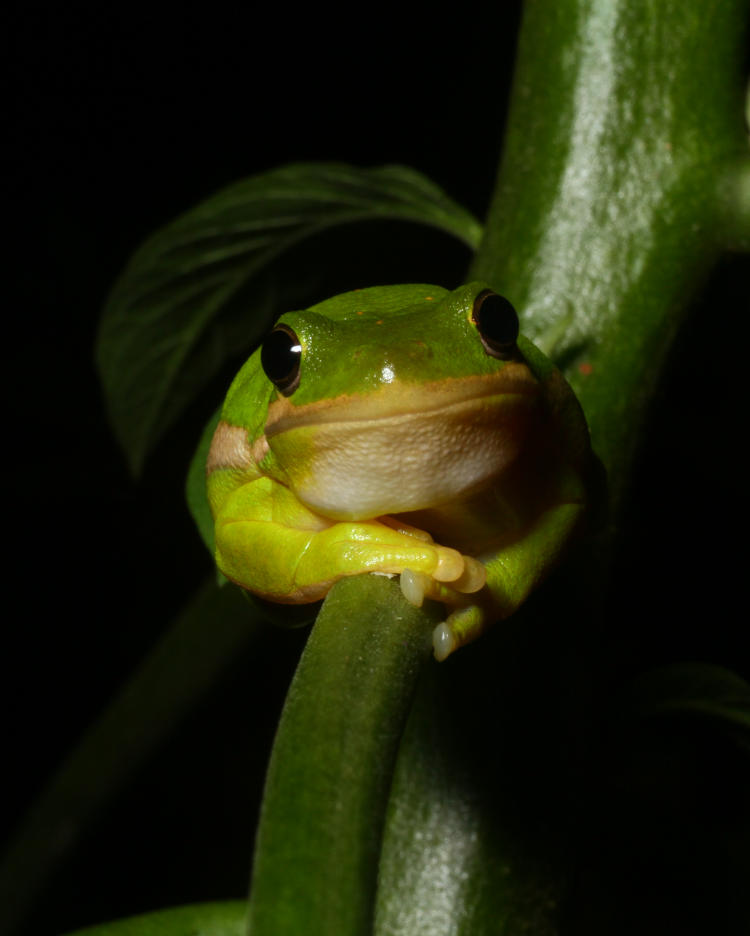
This rotund little adult was perched stoically on one of the trumpet flowers (Brugmansia) in the backyard, and I kind of expected him to ask me what favor he could do for me on this, the occasion of his daughter’s wedding. But he never broke the silence, so I guess that Canon MP-E 65mm macro lens is going to wait a little longer. Yes, positioning with that curled leaf in the background was intentional, thanks for noticing.
So that planned post went from eight to thirteen frames with a quarter-hour of shooting tonight, and now that those are out of the way, we get to the eagles.



















































